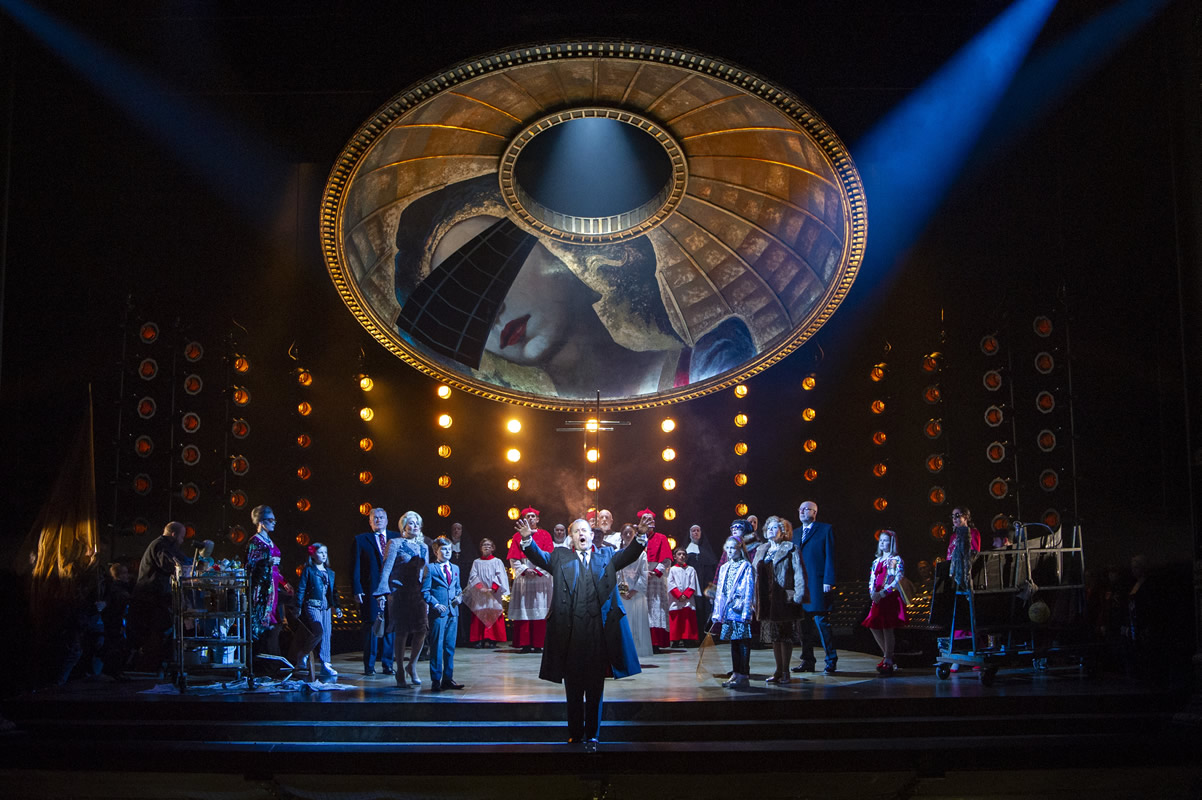Georgie Burgess reviews Opera North’s production of Tosca, an opera written by Giacomo Puccini that first premiered in 1900.
Too many people assume the Opera is not for them. I believe Tosca will prove them wrong.
This production is the fourth time that Opera North has staged Puccini’s political thriller, but they have without a doubt created something fresh and relevant that eerily echoes the turbulent time we live in.
The events of the opera happen in Rome over the course of just 16 hours. Opera singer Floria Tosca is in love with painter Cavaradossi, but corrupt police chief Baron Scarpia wants Tosca for himself and is willing to use any means necessary to have her. When Cavaradossi helps hide an escaped prisoner, Scarpia sees an opportunity to take down Tosca’s lover and claim her for his own.
Antony Hermus conducted the orchestra with swift precision, the music was fast paced with few pauses, giving the audience no time to dwell, propelling us along this emotional rollercoaster. Puccini’s score has a sad but hopeful quality to it; it lets you believe that everything might be okay but at the same time keeps you tense and wary, as if you yourself are trying to evade capture.
The show’s director, Edward Dick, has a clear vision for the piece that I feel he achieved well. To anyone who argues that opera is not relevant, Dick’s Tosca is the answer. The show is rife with political corruption, sexual exploitation and scandal hiding behind the mask of religion. The finale of Act 1, for example, is a rousing chorus number which had chilling similarities to certain recent inauguration ceremonies. However, by leaving the show in an ambiguous time frame, Dick leaves it up to the audience to draw their own parallels.

Tom Scutt’s set design is gorgeous and suitably grand for the melodrama it houses. Overhead hangs a large domed cupola painted with a fresco of The Virgin Mary, her everwatching eyes reminding the audience of the power religion holds over these characters. The cupola was utilised in a number of ways throughout the show, most impressively when it was tilted on its side for the final act. Lee Curran’s use of lighting was also extremely clever; it was subtle when it needed to be, but also harsh at times, just like the characters.
Giselle Allen gives the show’s namesake, Floria Tosca, a beautifully tragic arc. At first, she seems to be a jealous, possessive diva but as the show unfolds Allen transforms her into a woman purely motivated by love. Rafael Rojas shines as Cavaradossi, his experienced tenor dominating the stage. Robert Hayward is chilling as the corrupt Baron Scarpia and he plays the role with all the disgusting confidence of a man used to getting his own way.
This was my first experience seeing a live opera and it did not disappoint. Tosca has all the passion and drama of a classic opera, but it stayed easy to follow and the English subtitles let me enjoy the music at my own pace. Perfect I would say, for a first-time opera goer. If this experience has taught me anything, it would be that the rewards of doing something outside your comfort zone far outweigh the risks. I urge you to do the same, because this experience I know, will stay with me for a long time.
Tosca is playing until 16th November at multiple venues across the North.
Georgie Burgess
Images Courtesy of Richard H Smith

